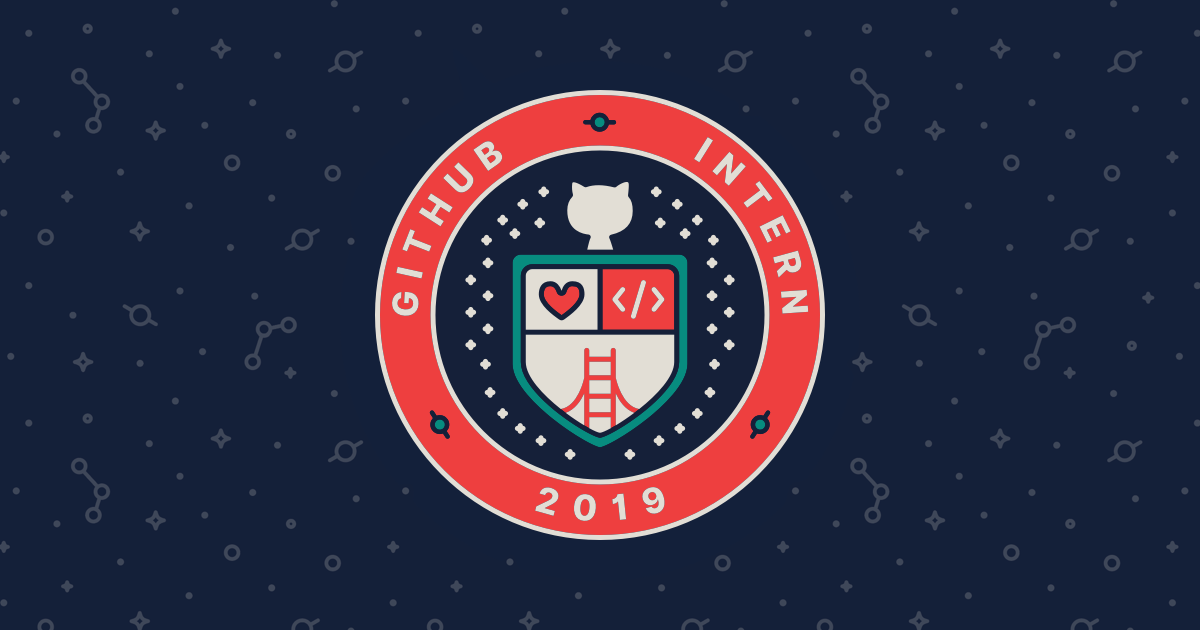GitHub intern project: Building a Learning Lab API
Check out our GitHub Internship series brought to you by our 2019 summer interns. In this post, Philip Dumaresq shares his experience building a Learning Lab API.

The GitHub Internship Program welcomes its summer 2019 students as we celebrate four years. After 5,000 applicants and a tremendous amount of planning, our interns are here and ready to tell you about their experiences with all things GitHub. In this blog series, students share their insight about using the GitHub Student Developer Pack, working with GitHub Learning Lab, and more. Check out the series and come back for more intern posts.
Philip Dumaresq is a student at Concordia University in Montreal, where he studies Computer Science. He joined GitHub in summer 2019 as an intern on the Learning Engineering team. In this post, Philip shares his experience building a Learning Lab API.

Connecting with Learning Lab outside the GitHub platform
The barrier to entry for programming can be difficult to overcome. Fortunately, there are many teachers and organizations that produce fantastic educational content to help learners get started. This summer, I built the first iteration of a Learning Lab API to allow course authors to leverage Learning Lab outside the GitHub platform. With this API, developers can embed a Learning Lab course into another website, find problems in their own courses to improve them, and more.
API architecture and design is a subject that I’ve long wanted to explore, and this was the perfect opportunity for me to develop my skills in that area while learning more about system architecture. By building this API, I would also learn how to take existing functionalities and break them down for a more abstracted system. Most importantly, I wanted individuals to be able to streamline their course-writing process and create a better learning experience by providing access to Learning Lab workflows outside of GitHub.
Building the API
I built a couple components for the API, which included an informative error handler to manage different HTTP request errors, as well as a simple web page for generating API keys for authentication. Before this project, I was unfamiliar with authentication using personal access tokens. Since I didn’t have much experience with application security, I knew how to hash a password to store it in a database on a fundamental level, but I didn’t understand how that process would translate over to personal access tokens. Luckily, after working with the Application Security team, the process was easier than I expected.

 Creating straightforward and user-friendly documentation is an essential skill to have when working on a user-facing product. With this in mind, I spent time writing external documentation on how to use the API and what each endpoint returns.
Creating straightforward and user-friendly documentation is an essential skill to have when working on a user-facing product. With this in mind, I spent time writing external documentation on how to use the API and what each endpoint returns.

Lessons learned
Before this internship, I wasn’t familiar with working on a team or having to deal with the involvement of many different stakeholders with differing opinions and priorities. However, by having team members review my code and provide feedback, I was able to improve my work on the API and my overall skills as a developer.
Another important lesson I learned is to, “fall in love with the problem, not the solution.” This concept means that it isn’t enough to focus only on building a solution. Rather, you should take all the different facets of the problem into account, build a general plan of attack, and not be afraid to start over—these things are equally important throughout the entire process. Once I started focusing on incremental development, the process to build the API went much smoother.
Written by
Related posts

Why developer expertise matters more than ever in the age of AI
AI can help you code faster, but knowing why the code works—and sharpening your human-in-the-loop skills—is what makes you a great developer.

How to create issues and pull requests in record time on GitHub
Learn how to spin up a GitHub Issue, hand it to Copilot, and get a draft pull request in the same workflow you already know.

The difference between coding agent and agent mode in GitHub Copilot
We’ll decode these two tools—and show you how to use them both to work more efficiently.